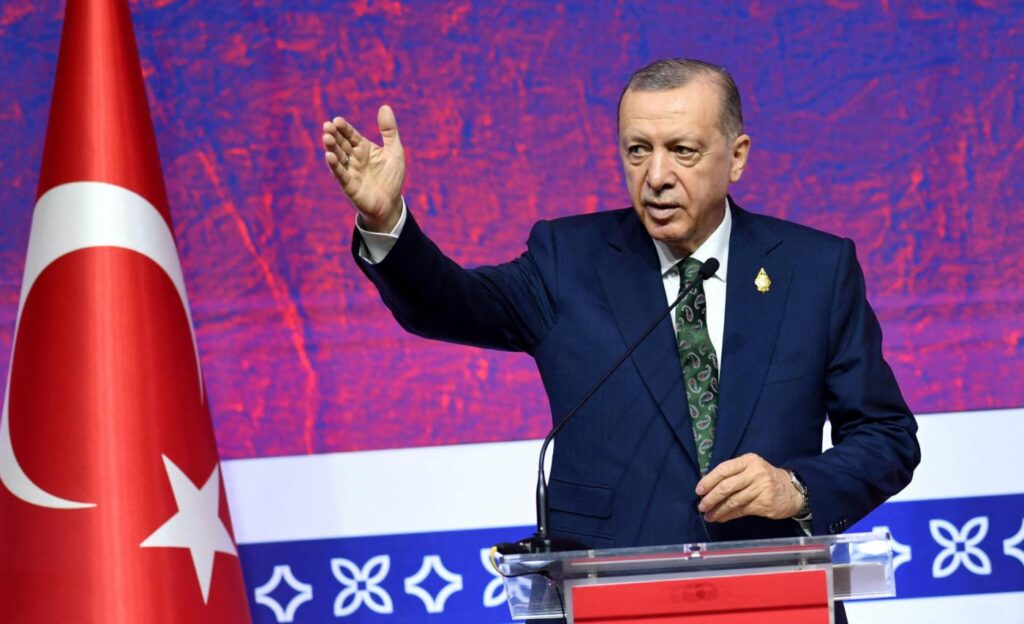If Modi manages a third term, there will be plenty for other authoritarians around the world to learn from him.
Sanjay Kapoor
Mevlana in the Turkish neighborhood of Mulheim at Cologne, Germany is teeming with people a day before the runoff to the Turkish Presidential elections. There is a perceptible levity in the air. A waiter helpfully explains the reason: “Recep Erdogan will win the Presidential polls tomorrow; that is why his supporters are celebrating.” Next day, expectedly, the results are declared, Erdogan’s supporters won by a handsome margin. In Germany alone, which has a large population of Turks – 2 million – he bagged 67 percent of the votes and his close rival, the reticent Kemal Kilicdaroglu only 32 percent. In Turkey, the contest was closer with Erdogan winning 52 percent of the votes and his rival 47.8. The urban areas and women largely voted against Erdogan.
Erdogan’s re-lection as the President of a geo-strategically important Turkey will have far-reaching implications on the war in Europe and also for even a distant country like India, with whom it displays understandable ambivalence due to its Kashmir policy. More importantly, a populist Erdogan’s win must have provided important lessons for Prime Minister Narendra Modi as India goes to polls in 2024.
Many believed that Turkish elections could be the most significant elections in the world. Though Turkey is a NATO member, the United States made it amply clear that it would be happy if Erdogan got voted out. Its Ambassador’s meeting with the opposition Presidential candidate was resented by Erodogan and his supporters. Quite astutely, the wily Turkish politician projected himself as a leader whose government exercised strategic autonomy in its foreign policy even while being a member of the NATO bloc of countries. Despite being a NATO member, Turkey has excellent relations with Russia and it also endeavored to be an honest broker between Russia and Ukraine to end the war. Despite being prevented from ending the war in March 2022, Erdogan remained a good friend of Moscow and President Putin, who helped him to fight off a coup attempt in 2016. There are also reports that Russia parked some $58 billion with Turkish government in the event of a crisis stemming from the complicated war with Ukraine. Due to all these reasons and more, Washington wanted to see the back of Erdogan.
Besides threatening to walk out of NATO, Turkey also used the Syrian refugee crisis cleverly. Managing what is called the ‘warehouse of Syrian refugees’, Ankara always kept the European countries on tenterhooks on how many refugees it would release to look for refuge in the continent if they did not pay for their upkeep in his country. Erdogan also got substantial investment from the Syrian expatriates in his own country.
He played this clever game that allowed him freedom from criticism from EU and US about his strong-arm tactics and smothering of dissent inside Turkey. In 2016, Erdogan government arrested thousands of followers of Fathehullah Gulen, a US-based religious head, for conspiring to overthrow him. Not too long ago, it was with the support of Gulen that he had managed to break the hold of the army generals who defended the secularism as conceived by the architect of modern Turkey, Kemal Ataturk.
Though, President Reccep Erdogan has steamrolled all opposition to emerge victorious, the truth is that Turkey is a badly divided society. By using police and intelligence agencies, he may have prevented the combined opposition put up a good fight against his candidature, but Turkey continues to be a sharply divided country. His efforts to Islamize the society have not gone down well with the country’s modern women, who reportedly voted en masse against his party, AKP. The strategy to Islamize the society may have begun from villages, but it spread to cities rather quickly. Many AKP members and religious radicals were emboldened enough to accost women to wear a hijab even in fashionably edgy Istanbul. Like any other liberal society that slides into authoritarianism, there has been a flight of many left-wing intellectuals from the country. This does not really bother Erdogan whose importance in the Islamic world has grown with most of the Muslim countries wooing him for a variety of reasons. While its relations with Saudi Arabia took a mighty hit after Turkey blamed Saudi royalty for journalist Jamal Khashoggi’s assassination in 2016, other Muslim countries more than made up for it. Iran, for instance, drew closer to Ankara even when the US and Israel were breathing fire at it. Qatar, which was estranged from Saudi Arabia for the alleged proximity with Muslim brotherhood found a friend in Erdogan. In this very complex world where tribal loyalties clashed with geopolitical compulsions, Erdogan managed to emerge as the uncompromising leader of the Islamic world. It is this image that found trenchant opposition in India.
Turkey has centuries old influence on the Indian culture and society. Though there are few Turks of the new generation that stay here, Turkey’s imprint on architecture and language tells a different story.
Erdogan government’s support to the Kashmir issue in the Organisation of Islamic Countries (OIC) and outside has been a cause for immense dismay for New Delhi. Ever since the BJP government came to power and Narendra Modi was compared with the populist persona of Erdogan, increased interactions between the two governments have been accompanied by severe criticism of each other’s policies. This is the reason why the relationship, despite various diplomatic efforts, has not grown. India has always accused Turkey of pandering to Pakistan and its point of view.
Despite all these problems between the two countries, return of Erdogan would encourage Indian PM to follow some of his ways to retain power. Unlike Turkey, there are parts of India where the ruling Bharatiya Janata Party would have little sway. Also, as the elections in India, would not be presidential, there is plenty of scope for anger against local representatives.
Erdogan won by dominating the narrative and keeping the opposition leader out of TV and print media. Similar attempts are made in India too. The friendly media only attacks the opposition and never asks any questions from the party in power. Modi has been allowed to go scot-free by the media, even when he has not addressed a single press conference in his two terms as the prime minister. Erdogan talks to the friendly media persons, but keeps the rest in jail. At least, in India, dissenters do lose jobs but are, by and large, not incarcerated.
Though there are many similarities, the Indian elections are a more complicated exercise than the presidential polls. And if Modi manages a third term, there will be plenty for other authoritarians around the world to learn from him.
A foreign policy analyst, Sanjay Kapoor is the founding editor of the New Delhi-based Hardnews magazine. He is a member of the Editors Guild of India having also served as its General Secretary.


